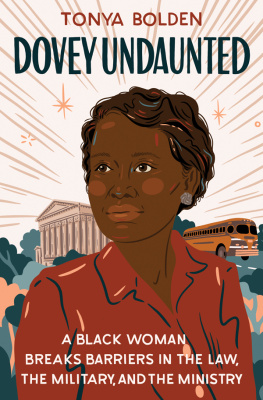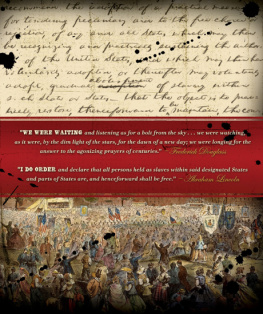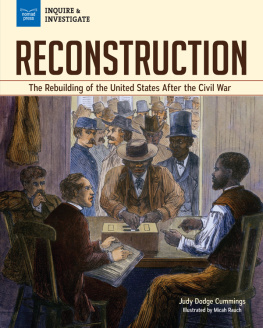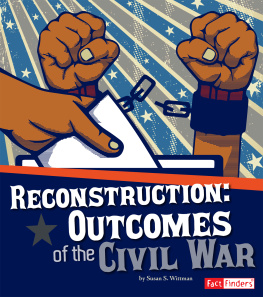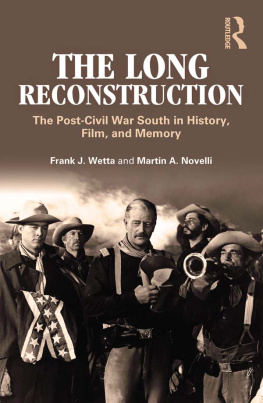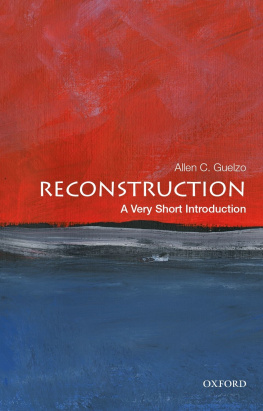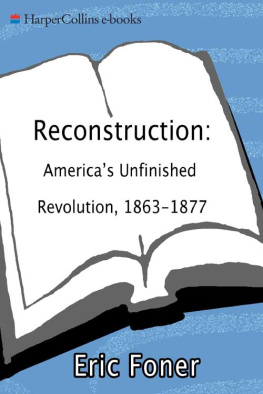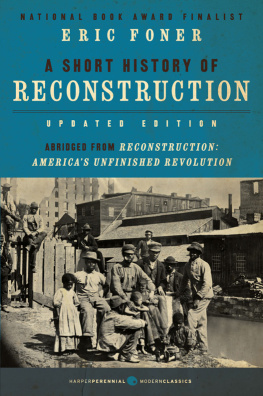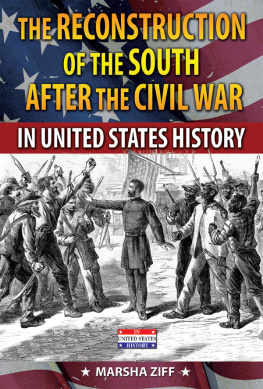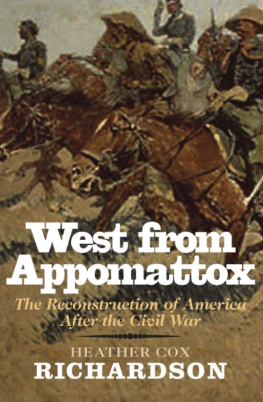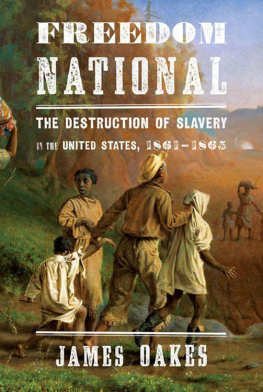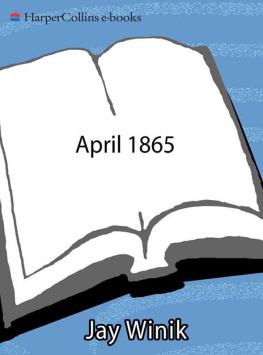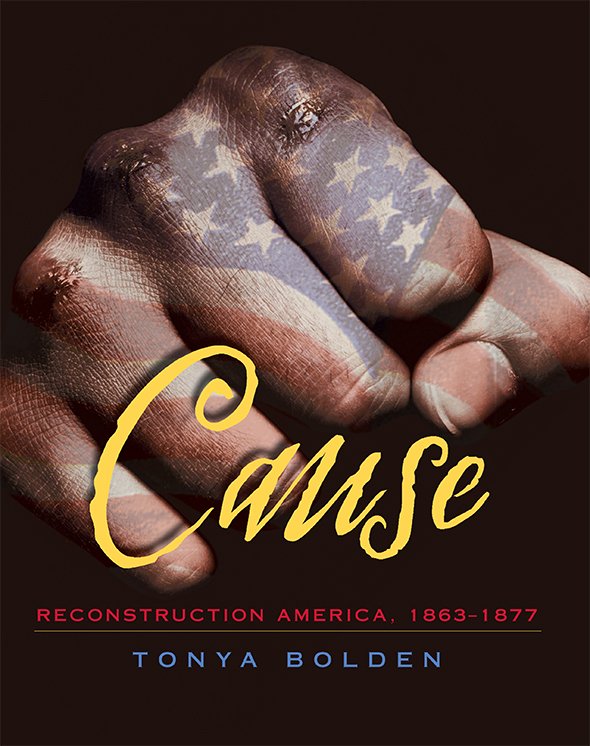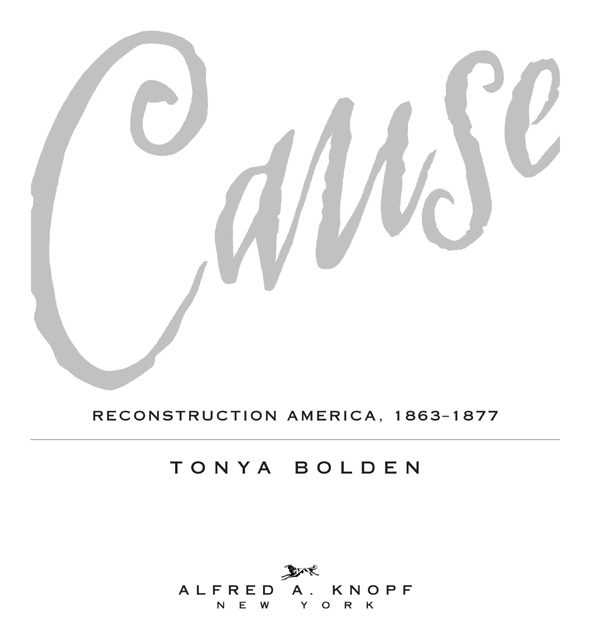THIS IS A BORZOI BOOK PUBLISHED BY ALFRED A. KNOPF
Text copyright 2005 by Tonya Bolden
All rights reserved. Published in the United States by Alfred A. Knopf, an imprint of Random House Childrens Books, a division of Random House LLC, New York, and simultaneously in Canada by Random House of Canada Limited, Toronto. Distributed by Random House LLC, New York.
Front jacket photo James Cotier/Getty Images Adapted by Alfred A. Knopf
Back jacket photo courtesy of the Library of Congress
Illustration credits can be found in the Illustration Credits chapter.
randomhouse.com/kids
KNOPF, BORZOI BOOKS, and the colophon are registered trademarks of Random House LLC.
Library of Congress Cataloging-in-Publication Data
Bolden, Tonya.
Cause : Reconstruction America, 18631877 / Tonya Bolden. 1st ed.
p. cm.
ISBN 0-375-82795-1 (trade) ISBN 0-375-92795-6 (lib. bdg.)
eBook ISBN: 978-0-307-79288-4
1. Reconstruction (U.S. history, 18651877)Juvenile literature.
2. United StatesHistory18651898Juvenile literature. I. Title.
E668.B674 2005
973.71dc22 2005018138
v3.1
For my Southern forebears, who persevered up
from slavery, and in so doing, caused me to be
T.B.

CONTENTS
CHAPTER
Traitors Must Be Punished
CHAPTER
To a Fairer Future of Liberty and Peace
CHAPTER
Johnson, We Have Faith in You
CHAPTER
This Is a Country for White Men
CHAPTER
A Blow to Our Government System
CHAPTER
We Are Americans
CHAPTER
Cause
CHAPTER
Why Not Hang Thad Stevens!
CHAPTER
Making a Whipping-Post of the South
CHAPTER
We Are Wise Enough
CHAPTER
The Great Obstruction
CHAPTER
Or Other High Crimes and Misdemeanors
CHAPTER
The Bill Do Pass
CHAPTER
Let Us Have Peace
CHAPTER
On Account of Race, Color, or Previous Condition of Servitude
CHAPTER
We Are Governing the South Too Much
CHAPTER
All We Want Is to Live Under the Law
CHAPTER
Why Is This, Ma?
CHAPTER
The Promises in Your Constitution
CHAPTER
A Doubtful Election
PROLOGUE
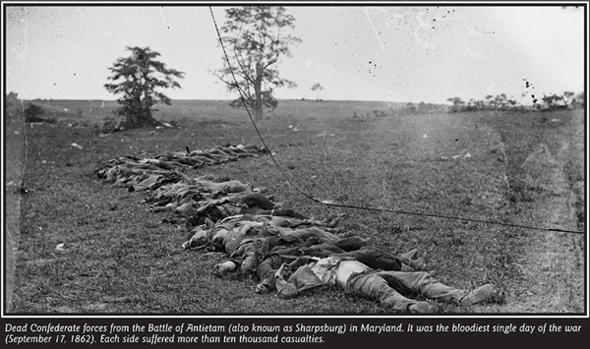
The Civil War is hands down the most captivating period in American history. More than sixty thousand books have been published on the subject. The nations reunionReconstructionis no less deserving of our attention.
Reconstruction was a time of recovery: a nation torn asunder becoming one again. But should the failed breakaway states be treated as if nothing had happened? People, North and South, were also wrapping their minds around the reality that chattel slavery would be no morenowherein America. And what then? Should the federal government reimburse slaveholders for their liberated human holdings? Would freed people be compensated for those bitter years of stolen labor, brutality, and attempted soul murder? If so, by whom? The federal government? The people who had held them in bondage? Were once-enslaved and never-enslaved coloreds or negroes really to be Americans?
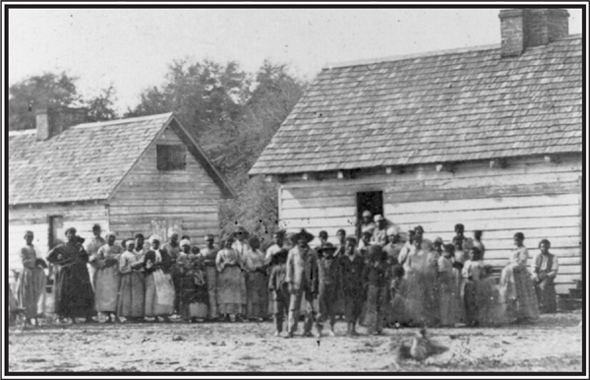
Beaufort, South Carolina, 1862. When Union forces triumphed in the area, planters fled. Their confiscated property included about ten thousand black people. The U.S. government recruited reform-minded Northerners to go to the area to educate and in other ways help these people transition from slavery to liberty and prove to doubting whites that freed people could handle freedom. These initiatives are known as dress rehearsals for Reconstruction.
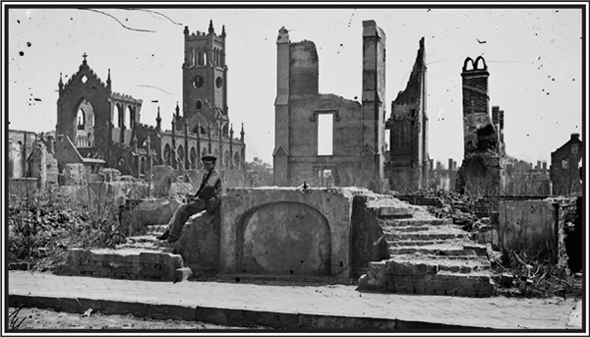
Charleston, South Carolina, in 1865, four years after the Civil War began there.
A few years before the war, in the Dred Scott case, the U.S. Supreme Court ruled that blacks never were, never could be, and never should be citizens. Chief Justice Roger Taney insisted that the fifty-five white men who crafted the Constitution, the ultimate law of the land, had put the nationthe worldon notice that blacks had no rights which the white man was bound to respect. After the war, the nation convulsed with calls for and against black men having the same rights as white men.
What about the rights of women? What about Native Americans in a nation steadily expanding its turf? Reconstruction was a riptide of issues. Cause: Reconstruction America, 18631877 is an overview and gateway to more in-depth study of this tempestuous era.
TRAITORS MUST BE PUNISHED
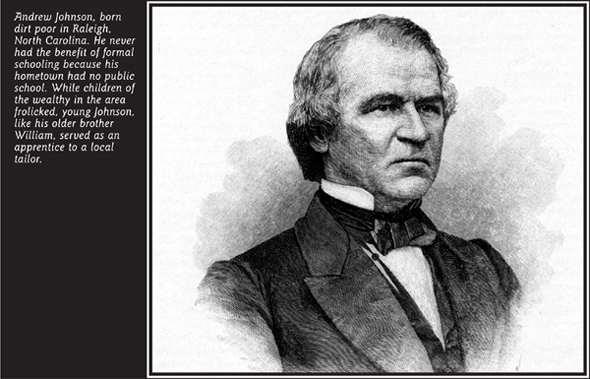
Vice President Andy Johnson was asleep on the night of April 14, 1865, when urgent knocks rocked the door of his rooms at Kirkwood House, the Washington, D.C., hotel that was his home away from home. Behind the door, horrible news: President Lincolnshot. With his wife and another couple, the president had been enjoying a comedy at D.C.s Fords Theatre when John Wilkes Booth pulled the trigger.
The shooting of the president wasnt the nights only tragedy. Armed with a pistol and bowie knife, a hulk of a man invaded Secretary of State William Sewards home, stabbed him repeatedly as he lay in bed, then cycloned back out into the night.
Rumors ricocheted around D.C. that several higher-ups in Lincolns administration had been slainincluding the very much alive Andy Johnson. He had rushed to Lincolns side, then returned to Kirkwood House, where he paced, where he pledged, They shall suffer for this. They shall suffer for this, and where he, no doubt, pondered the possiblethe probableimpact of Booths bullet on his life.
Stubborn, combative, shrewd, and sometimes crude, Andy Johnson was a tailor by trade. He had opened his own shop in the East Tennessee town of Greeneville, where he had a farm and other property, including about a half dozen black people. As he powered up economically, he scratched his political itch.
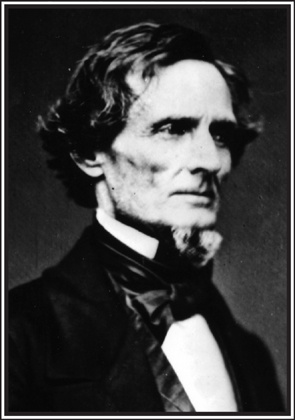
Confederate president, Kentucky-born Mississippi cotton planter and slaveholder Jefferson Davis, son of a Revolutionary War veteran and a West Point graduate himself (1828). Davis had been in the military during the U.S.-Mexican War (18461848), through which America came into possession of California, almost all of the Southwest, and part of Wyoming (with virtually all the Mexicans living in its new lands subject to second-class citizenship). Before that war, Jeff Davis was a member of the U.S. House of Representatives; after, of the U.S. Senate; then President Franklin Pierces secretary of war. In 1857, Davis returned to the Senate. He resigned in January 1861 after Mississippi seceded. We feel that our cause is just and holy all we ask is to be let alone, he declared a few weeks after his forces attacked Fort Sumter.




